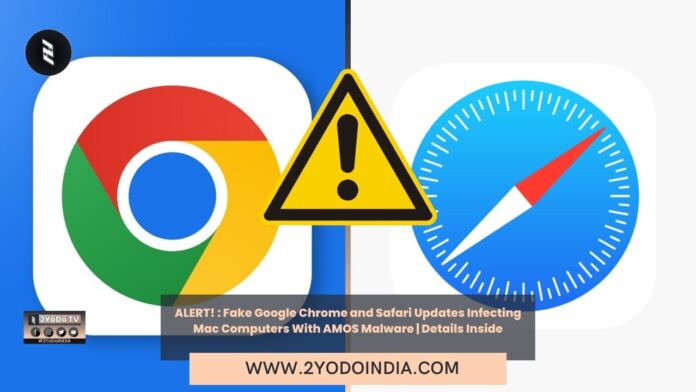Google Chrome and Safari Fake updates for macOS are being use to infect Mac computers with the nefarious Atomic Stealer malware, also known as AMOS. Mac owners as part of a social engineering campaign, AMOS can steal passwords, private files stored on a Mac.
You will need to stay alert and possibly use web protection tools in order to protect yourselves from malware distribute by social engineering, as malware creators appear to be turning their attention to Mac owners.
Security firm share details of the latest version of Atomic Stealer, malware that is distribute to macOS users via ClearFake, a campaign that uses hijack WordPress websites to deliver fake browser updates for Chrome and Safari.
The malware is distribute via hijack sites that closely resemble the Google Chrome download page, and a fake Safari update page that uses outdate icons from older macOS versions.
But, the rest of the webpage design might convince some users to click and download the malware, while the fake Chrome download looks more convincing.
When the user clicks the download button, the malicious .dmg file is then download to the Mac computer, disguise as a browser installer.
Post by @2yodoindiaView on Threads
When it download and open, the user is prompt to enter the administrator password that will run nefarious commands on the device, including stealing passwords from Apple’s Keychain and exfiltrate document, images, wallets and other data from the user’s desktop and documents folders on macOS.
In order to stay protect from the malware, you will have to make sure they use some form of web protection, such as the Safe Browsing setting inside Google Chrome.
Doing this may block some of these malicious sites from loading altogether.
While, users should avoid downloading installers for Chrome from unknown websites.
These social engineering websites are aim at fooling users who might find it difficult to discern which websites are genuine.
A good rule of thumb is to check whether the address bar shows google.com.
And Apple does not distribute Safari updates outside of operating system updates, so there are no official downloads that can be install by users.





